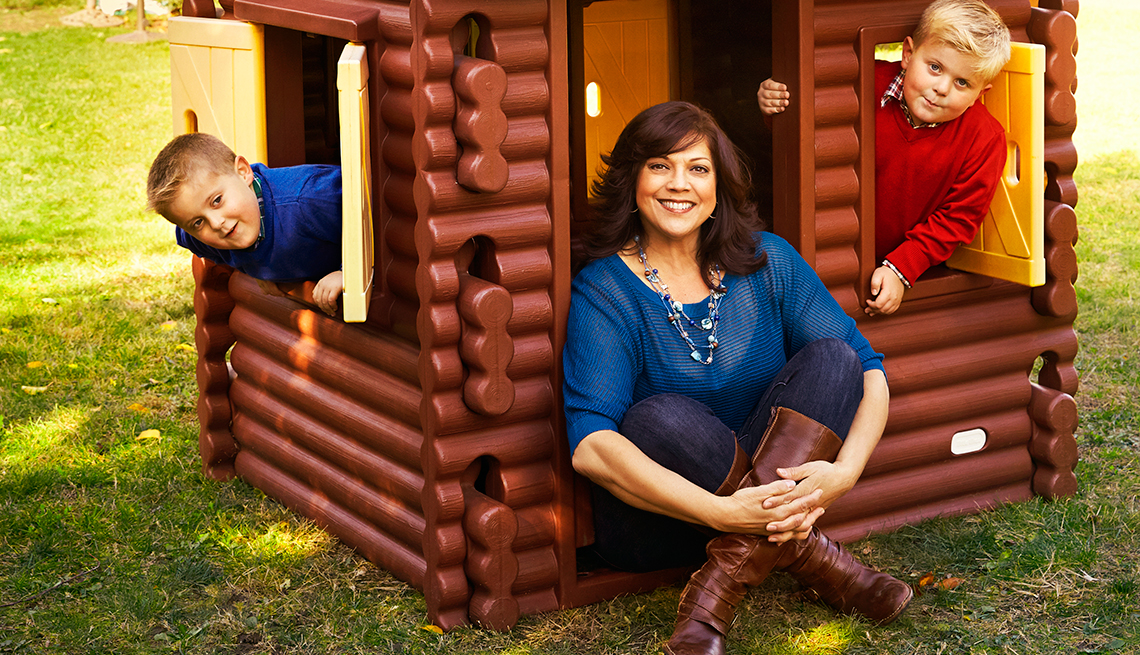
Women getting pregnant and having babies over 50
- Select a language for the TTS:
- UK English Female
- UK English Male
- US English Female
- US English Male
- Australian Female
- Australian Male
- Language selected: (auto detect) - EN
Play all audios:

Celebrities may help fuel the phenomenon: Actresses who have given birth near age 50 include Halle Berry, 47; Laura Linney, 49; and Kelly Preston, 48. The majority of 50-plus women who
became pregnant used donor eggs fertilized by sperm and implanted into a womb. The average age for menopause is 51. Fertility decreases through the 30s, ebbs much further in the 40s and is
largely extinguished by 45, medical experts say. In Sarajean Grainson's case, doctors implanted embryos in her uterus produced from eggs from an anonymous younger woman. The technology
for in vitro fertilization has spurred a cottage industry: Columbia University Medical Center pays donors $8,000 per egg retrieval cycle, Sauer said. Ideally, the important decision whether
to attempt a high-risk pregnancy should be made after consultations with fertility specialists, and medical tests to ensure the safety of the prospective mother. "I would say that, of
the [women] we see in their 50s, it is probably less than 10 percent that we deem too high a risk to treat" for fertility, Sauer said. "The most common reasons are high blood
pressure and fibroid tumors in the uterus." MEDICAL RISKS In 2012, the physician published a study that revealed the health of women 50 and older who gave birth using donated eggs was
as good as for younger recipients — if they had been well-screened and cared for during and after delivery. Nonetheless, significant medical risks exist, including the increased possibility
for gestational hypertension and diabetes, and preeclampsia — a pregnancy complication characterized by high blood pressure and possible organ damage. Stillbirth, preterm delivery, growth
restriction and multiple births, sometimes a consequence of IVF treatments, are potential complications. Any woman in her 50s considering pregnancy should consult with a maternal fetal
medicine specialist and then speak with a reproductive endocrinologist, recommended Irina Burd, M.D., associate professor of gynecology and obstetrics and neurology at Johns Hopkins School
of Medicine. "They can spell out the risks that pregnancy poses to their health, [risks] that sometimes might be permanent," Burd said. "For example, there is a higher risk
for having diabetes and hypertension for the rest of their lives." While potential medical dangers lurk for mothers-to-be, risks to newborns — namely Down syndrome and other genetic
abnormalities — are minimized because younger donor eggs are used. Younger women sometimes freeze embryos to use later. Multiple births are more common with IVF treatment because doctors
sometimes recommend implanting up to four embryos in patients older than 40 to increase the probability of pregnancy. The decision to give birth after 50 comes with a major financial
commitment. It can cost as much as $25,000 to $30,000 with egg donation for a single successful IVF attempt. Insurance often does not cover the costs. Still, for some couples, the challenges
are small weighed against the rewards. Turned down by U.S. clinics, Frieda Birnbaum and her husband traveled to South Africa for IVF treatments. At 60, she gave birth to twin boys. Brian
Doben TWINS AT 60 Frieda and Ken Birnbaum of Saddle River, N.J., have five children. Frieda, a psychologist, and Ken, an attorney, celebrated the birth of son Ari when she was 53. But at 60,
at her husband's urging, she delivered twin boys, Josh and Jaret, by C-section. The New Jersey couple traveled to South Africa for IVF treatments, where the youngish-looking blonde
lied about her age. She had been turned down at U.S. clinics with cut-off limits at age 50.
